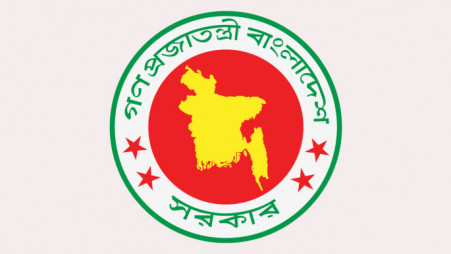Govt will no longer approve recruiting foreign general workers
Sources reveal that it was also decided in the meeting that work permits of current foreign general workers will not be renewed after expiration

Highlights
- Only expert-level recruitment will be approved
- On-arrival visas have been restricted
- Foreigners violating visa conditions will be blacklisted and deported
- A software system is being introduced to build a database of foreign workers
- Approximately 1,75,000 foreigners are currently residing legally in Bangladesh
The government has decided not to approve foreign nationals for jobs in Bangladesh's labour market where sufficient local manpower is available – such as factory operators, technicians, mid-level managers, and general project workers. Only the recruitment of expert-level employees will be approved.
This decision was made to create employment opportunities for locals, reduce foreign currency expenditure, and prevent tax evasion. According to home ministry sources, the decision was made in a meeting chaired by Md Siraj Uddin Miah, the chief adviser's principal secretary, in mid-April.
Sources reveal that it was also decided in the meeting that work permits of current foreign general workers will not be renewed after expiration. Three teams of the Special Branch (SB) of police have been working to find out instances of violation of visa criteria.
If a foreigner is found to be working for a different organisation or job from what was approved, they will be blacklisted and deported. Several foreigners have already been deported for violating visa terms or being involved in crimes.
Furthermore, on-arrival visas will be stopped for nationals of countries where Bangladesh has embassies. However, exceptions will be made for those attending government-arranged programmes and international or bilateral tournaments and people with defence, UN agencies, and diplomatic assignments. On-arrival visas will not be issued to athletes from sports other than cricket, especially footballers.
A software system is also being launched to create a database of foreign workers. The home ministry is expected to issue a circular soon about on-arrival visas and the integration of foreign nationals into the software system. An app for on-arrival visas has already been launched.
Md Shamim Khan, additional secretary (Security and Immigration Division) of the home ministry, told TBS on 22 April that important decisions have been made regarding foreign work permits, software/online database systems, and on-arrival visas. However, until the circular is issued, all parties must comply with the current rules.
On 8 December last year, the ministry issued a notice, urging foreign nationals illegally staying in Bangladesh to regularise their status with proper documentation. Another notice from the ministry gave a deadline of 31 January this year to apply for legal status.
Then on 3 February, the government formed an 11-member task force, headed by Additional Secretary Shamim Khan, to determine actions regarding illegal foreign nationals in Bangladesh.
The National Security Intelligence reported that as of September 2024, about 1,39,000 foreign nationals were residing legally in Bangladesh.
Home ministry sources said intelligence agencies reported in December last year that around 46,000 foreigners were staying illegally in the country. After the government's notice, around 15,000 foreigners left the country with exit passes, while the rest applied for legal status. Now approximately 1,75,000 foreigners are residing legally in Bangladesh.
Shamim Khan declined to comment on the exact number of foreigners, but said there are doubts about the accuracy of available data due to double counting and lack of clarity on whether people who arrived with on-arrival visas have left or stayed. He, however, estimated that over 50% of foreigners in Bangladesh are engaged in general labour.
According to a 2020 survey by Transparency International Bangladesh (TIB), at least 2,50,000 foreigners were working – legally or illegally – in Bangladesh. It estimated that at least $3.15 billion in remittances were being illegally transferred abroad annually, and tax evasion by these workers caused a minimum annual revenue loss of about Tk12,000 crore.
TIB's research found that citizens of over 44 countries are employed in various sectors in Bangladesh – mostly from India, China, Sri Lanka, Pakistan, Japan, South Korea, Malaysia, Taiwan, Thailand, Germany, the USA, the UK, Turkey, Singapore, France, Indonesia, the Philippines, Norway, and Nigeria. The number of Russians in Bangladesh has also increased due to the Rooppur Nuclear Power Plant.
According to the home ministry, the largest number of foreign workers are employed in the ready-made garments (RMG) and textile sectors. Others work in development projects, multinational companies, power plants, international NGOs, the leather industry, healthcare, and the hospitality sector. Several thousand are students or athletes.
According to the Income Tax Ordinance, foreign nationals must pay 30% tax on income, which has to be deducted at source by their employer. Failure to do so can result in penalties for the employer or the foreign national, including a fine of Tk5 lakh or 50% of the payable tax and up to three years in prison.
Former BGMEA president Faruque Hassan told TBS that discouraging the hiring of operators, technicians, and mid-level managers won't be a problem because there are sufficient local workers. Many students graduate from BGMEA's Fashion Technology Universities in Dhaka and Chattogram nowadays, and other universities are also offering market-relevant courses. However, experts are still required from abroad when launching new products or in specialised fields.



 Keep updated, follow The Business Standard's Google news channel
Keep updated, follow The Business Standard's Google news channel
















